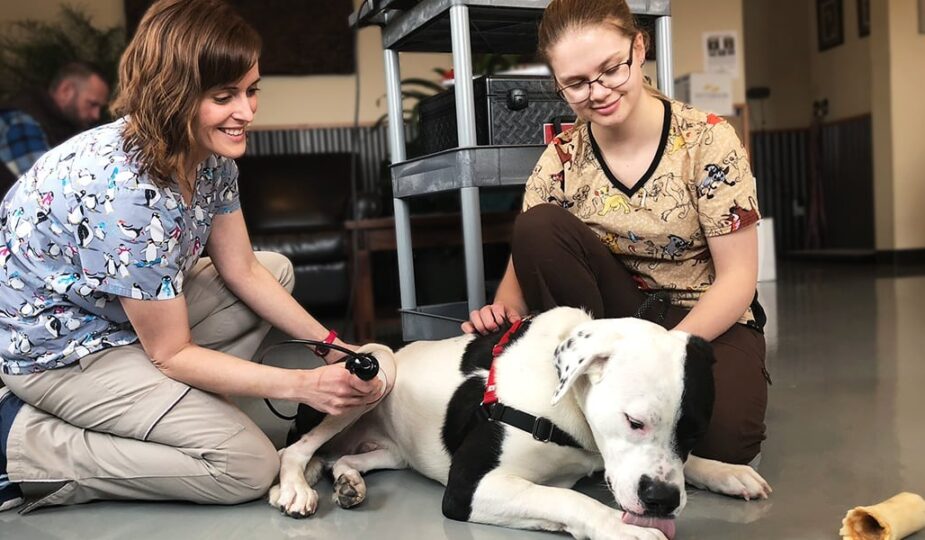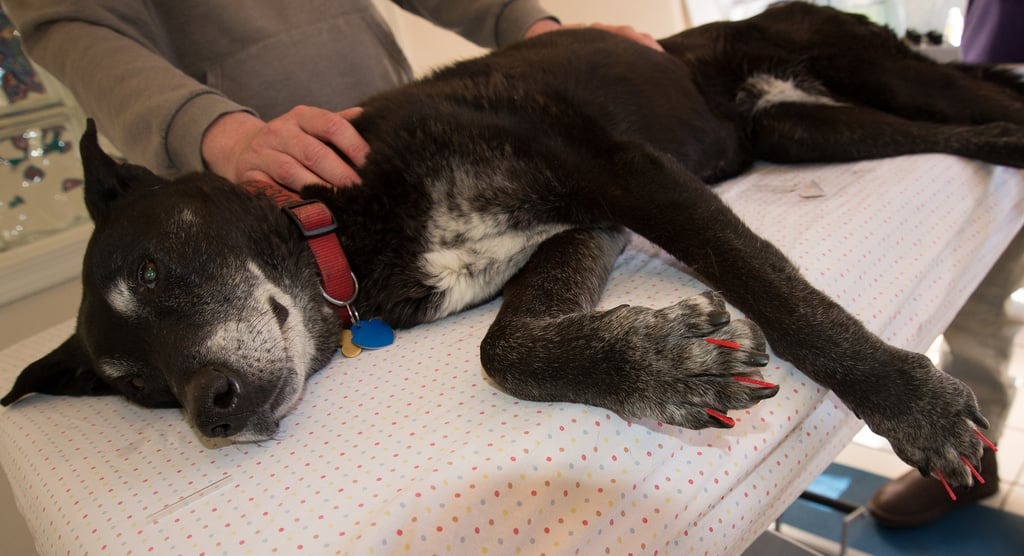
Alternative Therapies That May Benefit Your Dog
We love our dogs so much, and we can only thank modern technology for the medical procedures and medicines that help the US cope with the health problems they go through throughout their lives.
Sometimes, however, many dog owners can’t help but worry about some of these conventional medical treatments. As in humans, the medicines we administer to our beloved canines can cause unwanted side effects. Some medical procedures may also come as a bit too invasive for you.
Conventional treatments help our pets live longer and healthier lives. Still, many people seek alternative therapies and remedies for their dogs simply because they can solve their medical problems with very little or no side effects.

We do our best to take care of our dogs. We bring you to a dog grooming spa and shower you with all the love you did. Perhaps we should also consider alternative treatments for your skin problems, digestive problems, arthritic pain, and other disorders.
Let’s take a look at some of these alternative therapies that will benefit your dog.
Herbal Treatments
You may have noticed that your dog eats grass from time to time. Although science has not yet determined the reason for this behavior, some veterinarians believe that dogs do it to treat stomach upset.
Our dogs instinctively go for herbal self-treatment says a lot about what herbal treatments can potentially do for their health.
Consider this: many traditional medicines for dogs already come from plants. For example, flea control products contain pyrethrins obtained from chrysanthemums. medicines for Heart health issue in Dogs can Thimble under their ingredients.
Herbal remedies are natural and are commonly used to treat a variety of health issue, from Aloe Vera for scratches to Goldenseal for Eye infections. Nevertheless, it is best to consult your veterinarian first to make sure that you are using herbal preparations correctly.
Editor’s note on caution: some herbs may be toxic to dogs or conflict with the treatment of existing health issue. Consult your veterinarian before giving it to your dog.
Acupuncture points
Acupuncture has been around for thousands of years and is used to promote the body to heal itself. Originating in China, acupuncture has since been practiced in the Western world to relieve pain, inflammation and other health problems in humans. According to a study, acupuncture has also been shown to be an effective treatment for dogs with neurological and musculoskeletal disorders.

Today, dog owners can opt for acupuncture to treat their dogs suffering from arthritis, allergies, constipation, metabolic health issue such as kidney and liver health issue and even cancer.
Acupuncture is often considered a simple insertion of needles into certain points of the body. However, there are several variants of the technique, such as acupressure, where pressure must be applied to the same points, but without the needles. Some opt for electrostimulation, in which the carefully measured electric current is delivered by the needles-in-the-acupuncture points. Other variations of acupuncture include aquapuncture, moxibustion, and laser stimulation.
Hydrotherapy
Hydrotherapy is also called hydrotherapy and has become an integral part of the body rehabilitation of dogs.
If you have a dog that has arthritis or joint problems, is recovering from surgery, or is simply overweight, you may want to try Hydrotherapy. You urgently need cardiovascular activity, and physiotherapy in the water provides the most convenient and painless way to get it.
During a typical hydrotherapy session, your dog is immersed in a pool of heated water, which also helps relieve his aching densities, and muscles. For 15-30 minutes, your dog will be guided to swim or walk on an underwater treadmill if he can. Don’t worry if your pet has trouble staying afloat, as harnesses and life jackets are available for dogs that are not very good swimmers.
With hydrotherapy, dogs get a good workout that helps them build muscle, improve blood circulation and increase mobility.
Massage Therapy
Regardless of who gets regular massage, their dogs also get them when someone gently rubs and kneads their aching muscles and densities from time to time.
Canine massages can:
- Improve blood circulation
- Remove tight muscles
- Promote the release of endorphins that help relieve pain, stress and anxiety
- Lubricate seals
- Improve freedom of Movement
- Accelerate recovery from injuries or operations
- Voltage
- Improve sports performance
- Promoting the body to Holy itself
- Improve muscle tone
- Relief bread
Although you can massage your dog yourself, it is still best to take him to professional massage therapists trained in a variety of massage and stretching techniques for canines.
Aroma therapy
A dog is 40 times better than humans in Odor Analysis. With their superior olfactory abilities, dogs tend to respond even more strongly to aromatherapy, which revolves around the use of aromatic essential oils to improve body, mental and mental health.
Dogs ‘ stronger sense of smell helps to transport the effects of essential oils into their bloodstream faster. In addition to swallowing aromas, dogs can also benefit from topical applications of diluted essential oils.

Some essential oils considered safe and suitable for dogs include:
- Lavender-antibacterial, relaxing, antipruritic, deodorizing
- Ginger – For Indigestion, Motion Sickness, Arthritis, Sprains
- Myrrh-to remove irritated skin spots; also an excellent cleanser
- Helichrysum-has anti-inflammatory properties, good for bruises, scratches and scars; also ideal for pain relief and eczema.
- Chamomile-has with anti-inflammatory properties that help with burns, skin irritation, muscle pain and allergic reactions. Soothes Body and Mind.
- Geranium – against-ear infections, irritated skin and ticks
If you want to use essential oils for your dog, talk to your Veterinary first. He or she will give you information about the best carrier oils you can use to dilute essential oils, the right cans and which oils can harm your dog.
Editor’s note on deposit: Essential oils may be more toxic to some dogs or other pets such as cats, rabbits and birds.







